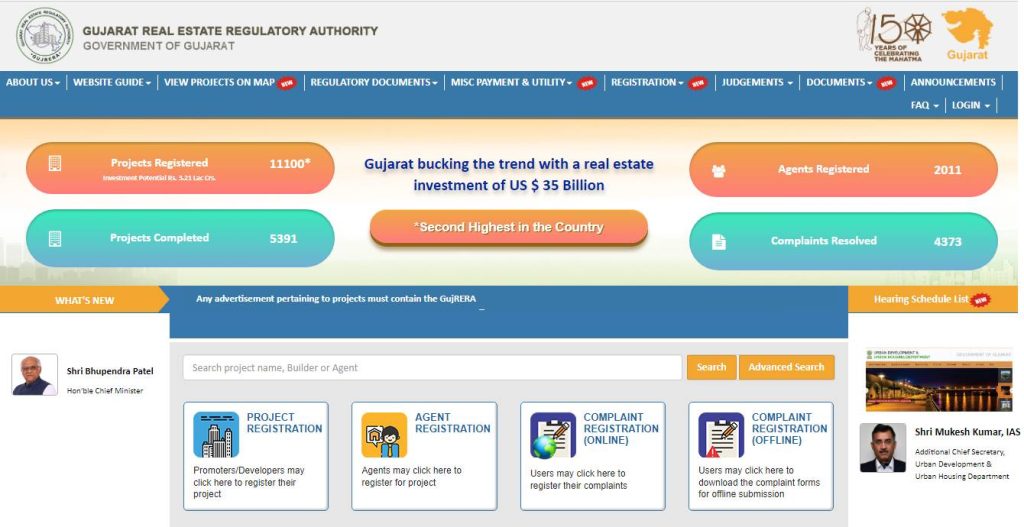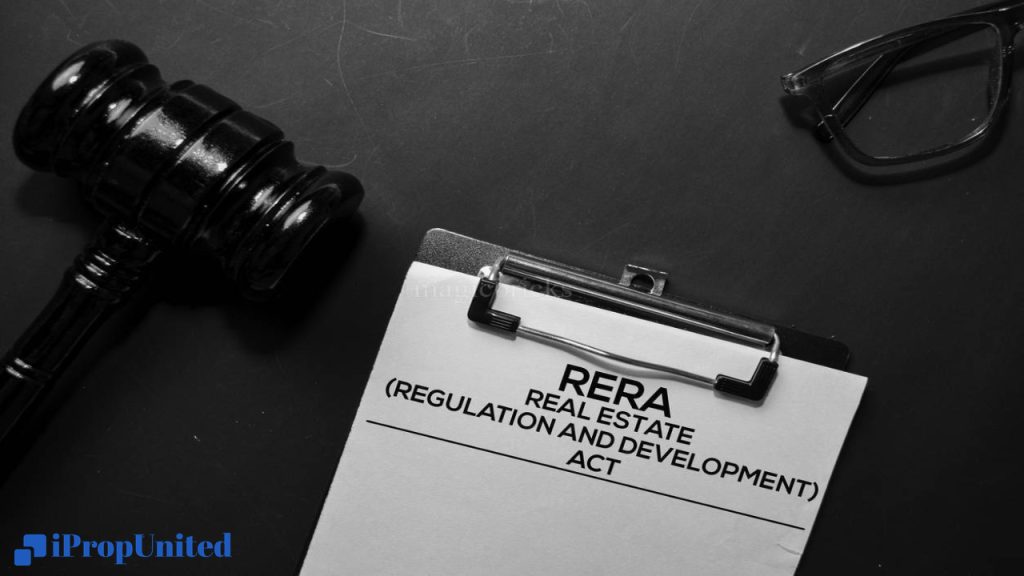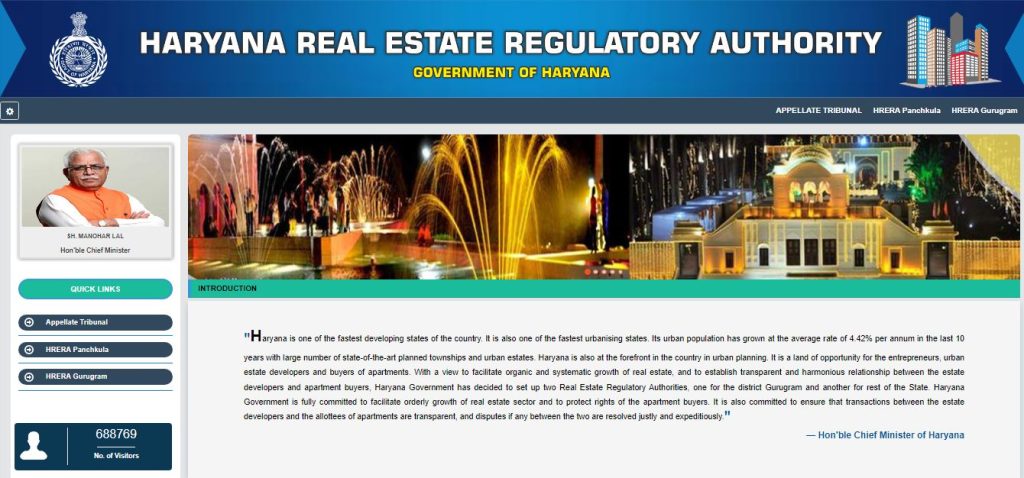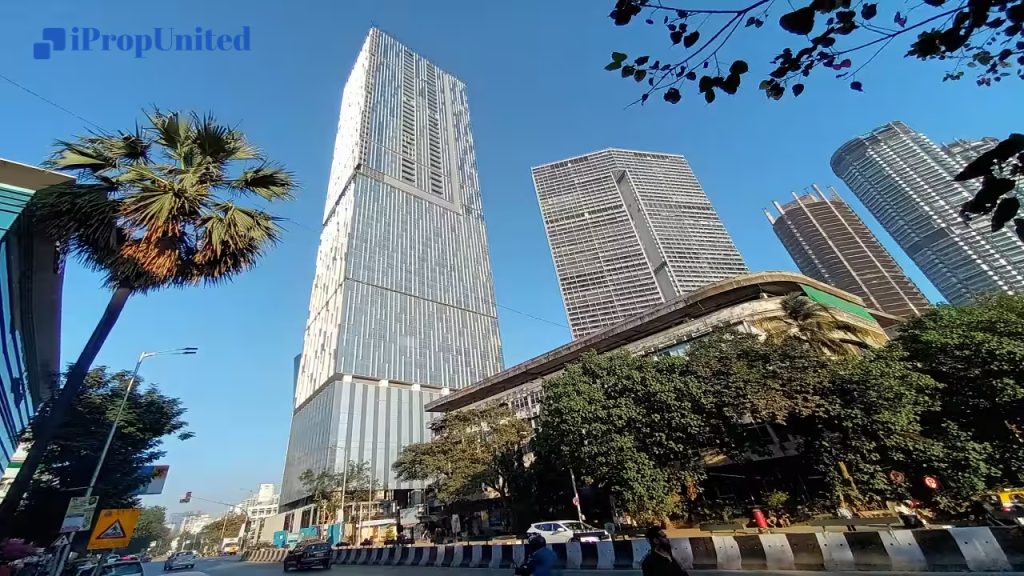The Real Estate (Regulation and Development) Act 2016 and all its sections came into force on May 1, 2017. Under this Act, the Government of Gujarat established the Gujarat Real Estate Regulatory Authority (GUJRERA) to regulate and promote the real estate sector in the State of Gujarat. Gujarat RERA is intended to make Gujarat the premier destination for real estate investment regionally, nationally, and globally, where the interest of consumers and developers in the real estate sector is secure through effective and fair regulation. The Act aims to provide a robust, secure, trustworthy, transparent, and sustainable real estate regulatory environment that encourages investment while protecting consumer rights.

Key components of Gujarat RERA Act, 2016
Real Estate Regulatory Authority And Appellate Tribunal
The appropriate government established real estate regulatory authority for regulating and promoting the real estate sector in State and Union Territories under this Act.
The authority makes an effort to facilitate the growth and promotion of a healthy, transparent, efficient, and competitive real estate sector while protecting the interest of promoters, allottees, and real estate agents. Authority established an adjudicating mechanism for speedy dispute redressal regarding registered real estate projects.
The key responsibilities of the authority are as follows-
- The act ensures the disclosure of real estate projects by realtors.
- Registration of real estate projects
- Registration of real estate agents
- Covers receipt and processing of complaints from consumers
- Provide recommendations to the appropriate Government on matters relating to the development and promotion of the real estate sector.
Gujarat RERA – Real estate project registration
All residential and commercial real estate projects will have to register except for projects where
- The area of land proposed to be developed is not more than five hundred sq mt.
- Inclusive of all phases the number of apartments proposed to be developed does not exceed eight
- If the promoter has received completion certificate for a real estate project before the commencement of this Act
- For the purpose of renovation, repair, or redevelopment which does not include marketing, advertising, selling, or new allotment of any apartment, building, or plot, as the case may be, under the real estate project.
Without registration of the project under GUJRERA, no promoter is allowed to advertise, market, book, sell, offer for sale, or invite persons to purchase any plot, apartment, or building in any manner, as the case may be, in any real estate project or part of it, in any planning area within Gujarat. In ongoing real estate projects, in which buildings as per sanctioned plan have not received completion certificates, promoters are also required to be registered for such phases of the projects consisting of buildings without occupation or completion certificate.
As per the Act, the promoter will be liable for a penalty that may extend up to ten percent of the estimated cost of the real estate project on the failure of registration. He will be punished with imprisonment for a term that may extend up to 3 years.
The promoters are also required to provide updates on the project on a quarterly basis to the authority.
Gujarat RERA – Real estate agents registration
Real estate agents are required to be registered under this Act. Without registering under this Act, no agent is allowed to facilitate the sale or purchase of any plot or building, or act to facilitate sell or purchase on behalf of any person as the case may be in a real estate project.
On failure of registration, real estate agent is liable to penalty of ten thousand rupees for every day during which such default continues, which may cumulatively extend up to five percent of the cost of plot, apartment, or building, as the case may be of the real estate project, for which the sale or purchase has been facilitated.
Filing of complaints
Any person who is mistreated may file a complaint with GUJRERA or the adjudicating officer, as the case may be, with respect to any registered real estate project, for any violation of the provisions of this act. The authority establishes an adjudicating mechanism for the speedy redressal of such complaints.
Any aggrieved person by any direction or decision or order made by GUJRERA may file an appeal before the Appellate Tribunal. Any person aggrieved by any order of the Appellate Tribunal may file an appeal to the high court.
Financial discipline
- As per the act, the promoter is not allowed to accept more than ten percent of the total cost of the apartment, plot, or building as the case may be, as an advance payment or an application fee, from a person without first entering into a written agreement for sale with such person and register the said agreement for sale.
- Allottees shall deposit seventy percent of the amounts from time to time that is realized for the real estate project, in a separate account to be maintained in a scheduled bank to cover the cost of construction and the land cost and shall be used only for that purpose.
- Withdrawals from these accounts must be made in accordance with the project’s progress as certified by an engineer, an architect, and a practicing chartered accountant.
- The promoter must compensate the buyer in case of any false or incorrect statement with a full refund of property cost with interest.
- Project Accounts to be Audited/FY. Copy to be submitted to Gujarat RERA.
- Provision for Gujarat RERA to freeze the project bank account upon non-compliance.
- Impose stronger financial penalties for Gujarat RERA non-compliances.
Citizen Centricity
- Citizens shall be able to view all disclosures about registered projects on the Gujarat RERA website. This shall enable data-driven, informed decision-making.
- The act restricts the promoters from making any changes in the sanctioned plans, layout plans and specifications, and the nature of fixtures, fittings, amenities, etc. without the previous consent of at least two-thirds of the buyers who have agreed to take apartments in such buildings.
- The promoter is liable to pay interest for every month of delay, in case of failure to provide possession of an apartment, plot, or building in accordance with the terms of the agreement for sale. Further, in case the allottee wishes to withdraw from the project, the promoter shall return the amount received by him with interest without prejudice to any other remedy available.
- Promoters must form a legal entity like a cooperative society, company, association, federation, etc. within three months from the date on which sixty percent of the total number of purchasers in such a building have booked their apartment.
- Within three months from the date of issue of occupancy certificate or sixty percent of the total number of purchasers have paid the full consideration to the promoter in such a building, the promoter should execute a registered conveyance deed in favor of the allottee.
- Real Estate (Regulation and Development) Act 2016 focuses on reforming the real estate sector in India, encouraging greater transparency, citizen centricity, accountability, and financial discipline.
Transparency in the market
RERA ensures the land title is clear, the encumbrances are sustainable, and the documents for sale are sound and legally enforceable and in accordance with the model documents to protect buyers from non-professionals. The physical progress and the financial discipline are monitored by independent engineers and financial experts as well as by ensuring the development and operation of the owners’ associations.
The act drives transparency in the real estate sector as follows-
- Ensures sanctioned plans, layout plans, along with specifications, are approved by the competent authority.
- It allows buyers to ask the promoter for the proposed Plan, the Proposed Layout Plan of the whole project, and the Floor Space Index proposed to be consumed in the whole project.
- Sanctioned and proposed number of buildings or wings to be constructed.
- The stage wise time schedule of completion of the project, including the provisions for civic infrastructure like water, sanitation, and electricity.
- Quarterly update of the list of the number of covered parking, and garages booked.
- Quarterly update the list of approval taken and the pending approvals
- which are subsequent to the commencement certificate.
- Quarterly update of the status of the project
- Other specified information and documents specified by the regulation made by GUJRERA.
The advertisement of prospectus issued by the promoter shall prominently mention the RERA registration number and website address of GUJRERA, wherein all details of the registered project have been entered.
Follow and Connect with us: Twitter, Facebook, Linkedin, Instagram














